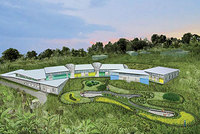Introduction to the Community Health Equity Fund (CHEF)
The City of Harare is introducing a groundbreaking initiative called the Community Health Equity Fund (CHEF), designed to enhance access to affordable and quality healthcare across the capital. This community-led health financing project is supported by several key stakeholders, including the Ministry of Health and Child Care, UNFPA, ZB Financial Holdings, and the Harare Municipal Medical Aid Society (HMMAS). The pilot phase will begin in the Harare South constituency, covering areas such as Hopley, Southlands, Ushewokunze, and Southlea Park.
Mayor Councillor Jacob Mafume emphasized that this initiative is part of a broader strategy to strengthen local health systems and ensure equitable service delivery. He mentioned that the Mabvuku Polyclinic is being upgraded with a state-of-the-art theatre, and clinics in Harare South are being enhanced to offer 24-hour casualty services. The pilot project is expected to guide the city’s master plan for a healthy and sustainable future.
Pilot Phase and Expansion Plans
According to the City Health Department, the pilot phase will commence in the Southern District, starting with Mbare and Hopley before expanding to Waterfalls, Sunningdale Satellite, Arcadia, Braeside, and Hatfield. The full citywide implementation is scheduled for 2026.
Under the CHEF scheme, residents will be required to pay a one-time registration fee of $1 and an annual subscription of $2 to access a range of services. These include doctor and nurse consultations, selected medicines with a $1 co-payment, and wellness club membership. For maternity care, members can contribute $1 monthly for nine months to receive full services without additional charges or opt for a $10 co-payment under a one-year subscription.
Benefits and Financial Management
The benefits of the CHEF program will include antenatal visits, delivery, postnatal care, ultrasounds, and access to caesarean services at council facilities. Funds collected through the scheme will be managed locally by Health Centre Committees and CHEF steering teams, ensuring that all revenue is directly used to improve services at participating clinics.
Community leaders have expressed support for the initiative, although concerns remain about the limited number of government hospitals in Harare South. John Chikobvu, a community leader from Churu Constituency, highlighted that the nearest hospital for many residents is Tariro Hospital in Hopley, which is currently overwhelmed. With over 300,000 people relying on one facility, there is an urgent need for more clinics and hospitals.
Future Developments and Partnerships
Mayor Mafume also announced that the city is finalizing a partnership with Switzerland to inject US$1 million into upgrading council hospitals. The refurbishment of the Mabvuku Polyclinic is already underway.
“Healthcare is a core city responsibility. Through partnerships like this, we aim to make healthcare affordable while aligning with national goals under the Sustainable Development Goals and the Ministry of Health’s strategic priorities,” Mafume stated.
City authorities anticipate that the CHEF initiative will transform healthcare delivery by enabling municipal clinics to operate 24 hours a day with expanded access to doctors, laboratories, and radiology services.
Conclusion
The Community Health Equity Fund represents a significant step forward in improving healthcare accessibility and quality in Harare. By involving the community in the management of funds and focusing on local needs, the initiative aims to create a more equitable and sustainable healthcare system. As the pilot project progresses, it will serve as a model for future expansion and long-term healthcare planning in the city.
